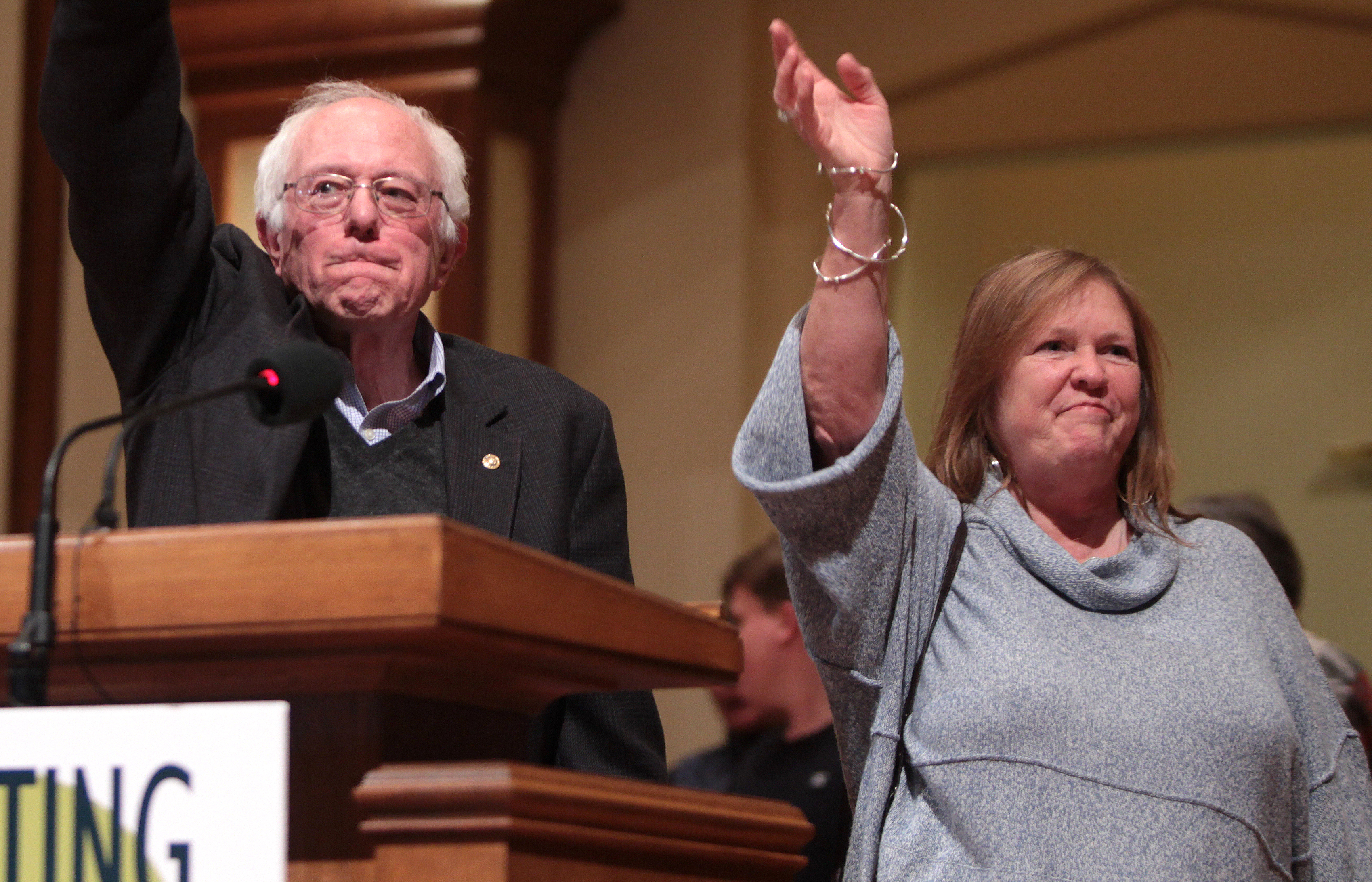
(File Photo: Bernie Sanders/Facebook)
MADISON, Wis. — U.S. Sen. Bernie Sanders returns to the friendly terrain of Wisconsin on Friday to kick off a swing through pivotal states that are part of the Democratic “blue wall” strategy for 2020.
The independent senator from Vermont carried Wisconsin by 13 points in the Democratic primary three years ago and has been a frequent visitor since losing the nomination to Hillary Clinton. He’s touted his appeal to working-class and college-age voters, while fostering his network of supporters before this second run for president.
“We know Bernie Sanders,” said Sarah Lloyd, 47, a dairy farmer from Wisconsin Dells who ran unsuccessfully for Congress in 2016 and planned to attend the Friday rally in the liberal capital city of Madison. “The thing that really keeps me close to Bernie is that he has been talking about these issues for 30, 40 years and I think people appreciate that. I appreciate that.”
Democrats have made clear that their best chance at defeating President Donald Trump in 2020 is by winning back three states Trump narrowly captured: Wisconsin, Michigan and Pennsylvania. Dubbed the “blue wall” before they unexpectedly tipped to Trump, they may have supplanted Florida and Ohio as the nation’s premier presidential battlegrounds.
Trump also knows the Midwest is vital to his re-election bid. He’s looking to repeat in states he won in 2016 and expand his territory. Trump was due to campaign Monday in Minnesota, a state that almost went his way in 2016 after not voting for a Republican presidential candidate since Richard Nixon in 1972.
However, Democrats feel like the momentum is on their side in the Midwest. They captured governorships in Pennsylvania, Michigan, Wisconsin, Illinois and Minnesota last year.
Democratic state Rep. David Bowen, of Milwaukee, an early Sanders supporter in 2016, said he wants Sanders to show that he has a message that can compete with Trump.
“Democrats are amped up, we are fired up to highlight issues that matter to folks in Wisconsin,” Bowen said.
The Sanders campaign said in a memo prepared in advance of the trip, which has stops in Ohio and Indiana, that the pathway to victory runs through the Midwest.
The memo said that Sanders has received donations from more than 8,000 people in Wisconsin, 14,000 in Michigan and more than 18,000 in Pennsylvania. Sanders was leading all Democratic candidates in fundraising as he tries to establish himself as the clear front-runner amid the crowded field.
Sanders’ appeal in Wisconsin is clear. He won 71 of the state’s 72 counties in 2016, defeating Clinton by 13 points. Sanders also narrowly beat Clinton in Michigan, but lost to her in Pennsylvania.
Early polling in Wisconsin, Michigan and Pennsylvania has shown Sanders ahead of other Democrats. Just this week, the Marquette University Law School poll showed Sanders leading a field of 12 Democratic candidates in Wisconsin.
But pollster Charles Franklin cautioned about reading too much into the numbers a full year before Wisconsin’s April 2020 primary. Candidates with the best name recognition, like Sanders, typically fare better this far out compared with others mounting their first national runs for office, Franklin said.
The Sanders campaign said his message on trade, unions, working families and health care resonates in Wisconsin and throughout the Midwest. Earlier this week, Sanders unveiled his latest “Medicare for All” proposal, an idea that has influenced Democratic state lawmakers in Wisconsin who are advocating for similar statewide health insurance coverage.
Sanders promises to tout his opposition to trade deals and his support for unions and raising the minimum wage while campaigning in the Midwest. He scheduled a visit with American Federation of Teachers President Randi Weingarten at an Ohio union hall on Monday.
Peter Rickman, a Milwaukee labour activist who led Sanders’ Wisconsin delegation to the 2016 Democratic National Convention, called Sanders “the best candidate to move transformational change.”
“I definitely view Bernie Sanders as the candidate best situated to not only defeat Donald Trump but to advance policies that stem the tide of skyrocketing inequality, to finally address the existential crisis that is climate change,” Rickman said.